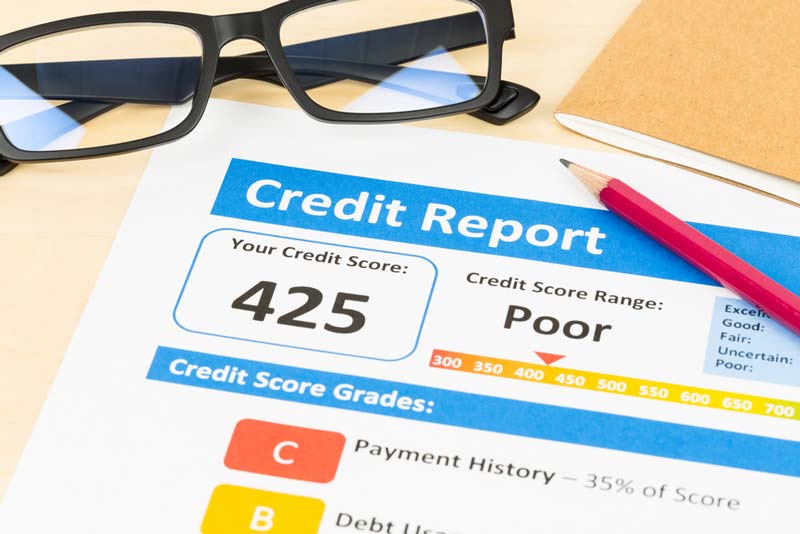CFPB’s Deal with Credit Bureaus Could Raise 12 Million Scores
The Consumer Financial Protection Bureau, which prides itself on being the watchdog for U.S. consumers, has been snarling at America’s three major credit bureaus for a while and finally decided to take a bite out of their bottom lines this year.
The CFPB hit all three of the major credit bureaus – Experian, Equifax and TransUnion – with million-dollar fines and demanded that they be more honest in marketing scores to consumers.
The CFPB fined Equifax and TransUnion a combined $23.2 million in January, then hit Experian with a $3 million fine in March. All three credit reporting bureaus were cited for doing pretty much the same thing: Misleading consumers about the cost and validity of credit scores the bureaus provided and making it extremely difficult to correct mistakes on credit reports.
None of the three would admit to any wrongdoing, but all three paid the fines and threw a bone back at consumers that should instantly improve credit scores for about 12 million consumers, according to the Wall Street Journal.
That will happen around July 1 when the bureaus exclude from credit reports any information on tax liens and civil-judgment decisions that don’t include the consumer’s correct name, address, date of birth and social security number. Most documents of that type don’t include all that information.
That bone has enough meat on it to raise the credit scores by as much as 40 points. That would be enough to kick some consumers far enough up the credit scoreboard to get a loan they wouldn’t otherwise receive.
Consumers can thank the CFPB, though anyone who wishes to do so might want to hurry because the agency is not a favorite of the new president.
The CFPB was born out of the Dodd-Frank Wall Street Reform and Consumer Protection Act of 2011. It has hit businesses in the financial industry with more than $5 billion in fines over the last six years, including a $100 million penalty against banking giant Wells Fargo last summer.
In February, President Trump told a group of prominent businessmen and bankers that “We expect to be cutting a lot out of Dodd-Frank,” and the CFPB probably has the biggest target on its back.
At worst, the agency could be eliminated. At best, it will see its power to regulate and penalize businesses in the financial industry dramatically reduced.
Before going, however, the CFPB did send a message to the three major credit bureaus for mistreating consumers. The CFPB has documented more than 186,000 consumer complaints about credit reporting and credit scores since July 2011, the most of any subject they handled.
Most of the griping was because of the nonchalant attitude credit bureaus had about mistakes on credit reports. Consumers felt like the bureaus didn’t take them seriously, even if they presented overwhelming proof that the information on reports was inaccurate.
The CFPB, which has been hounding the credit reporting industry for nearly six years on the subject, said things are improving.
“Because of our work, important improvements are being made,” CFPB Director Richard Cordray said in a statement. “Much more work needs to be done, but our corrective actions are leading to positive changes that are benefiting consumers all over the country.”
The focus of consumer gripes changed somewhat in 2016 when the credit bureaus advertised services that included credit scores for free or $1, but didn’t prominently mention that the offer was only a 7-day or 30-day trial, after which the full-service fee of more than $200 a year would kick in.
The bureaus agreed to make it easier for customers to cancel services they don’t want and now will obtain a customer’s consent to enroll in services in which fees begin after a free trial
Worse than that, the credit bureaus advertised their scores as being the same ones that lenders use in making credit decisions. Equifax even ran an ad for one of its in-house scores that read: “Banks and lenders will most likely check your credit – make sure you see what they see.”
The problem was, consumers and lenders weren’t seeing the same thing.
Consumers saw an “educational” score, that was significantly different than the FICO score that 90% of businesses use in lending decisions. The CFPB found thousands of examples of when “educational” scores made consumers look far better or worse than their FICO score.
The agency estimates that 20% of the scores consumers saw were in a different category than the score provided to lenders.
“Credit scores are central to a consumer’s financial life and people deserve honest and accurate information about them,” Cordray said in a statement.
It’s worth noting that the decision by the credit bureaus to not include tax lien and civil judgment decisions on credit reports could be the catalyst for more misleading credit scores for consumers.
Tax liens and civil judgments generally are negatives in calculating a credit score. Without them, consumers may get an inflated credit score that doesn’t accurately reflect their ability to repay loans.
That probably will mean more consumer complaints and more work for the CFPB, if they’re still around to do it.


















